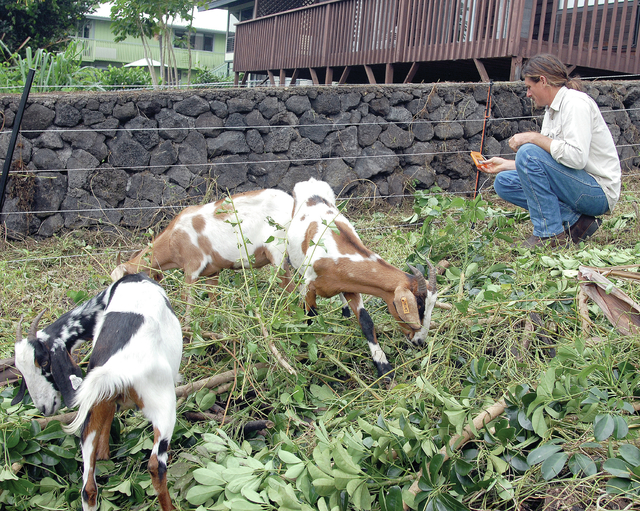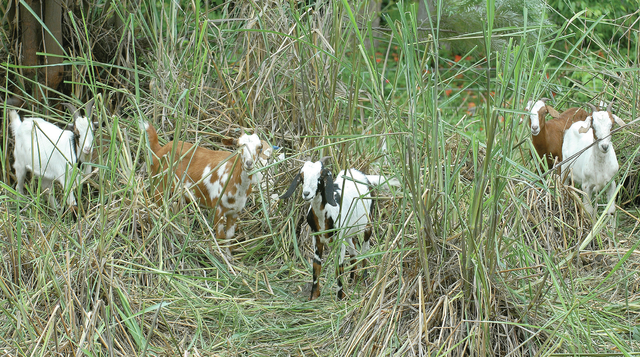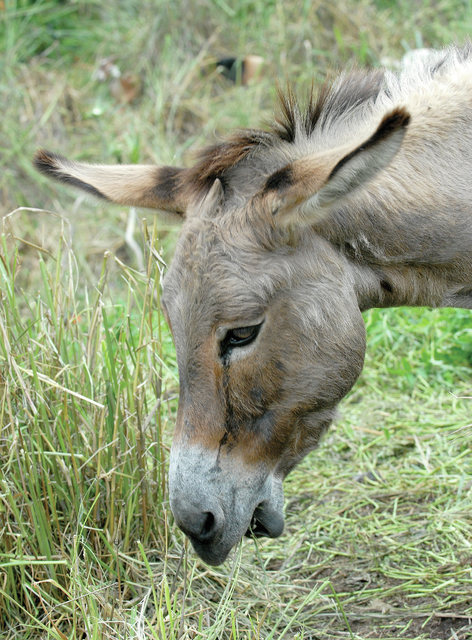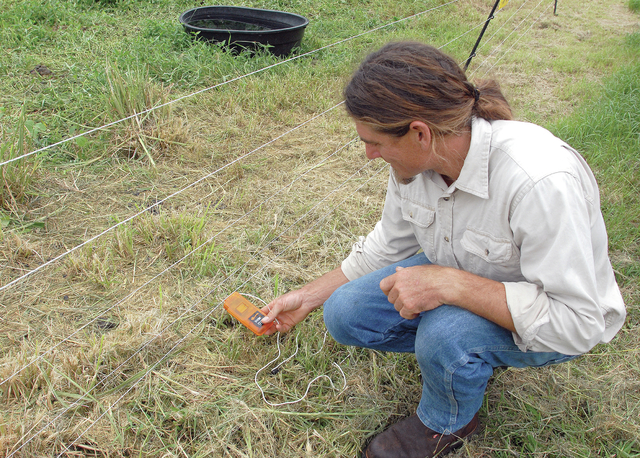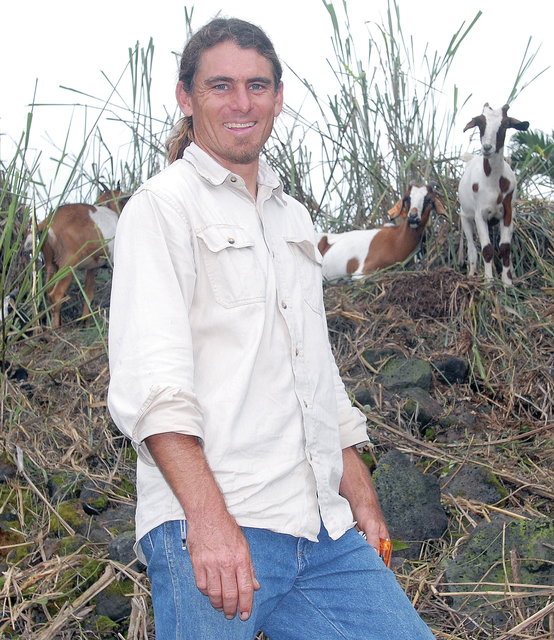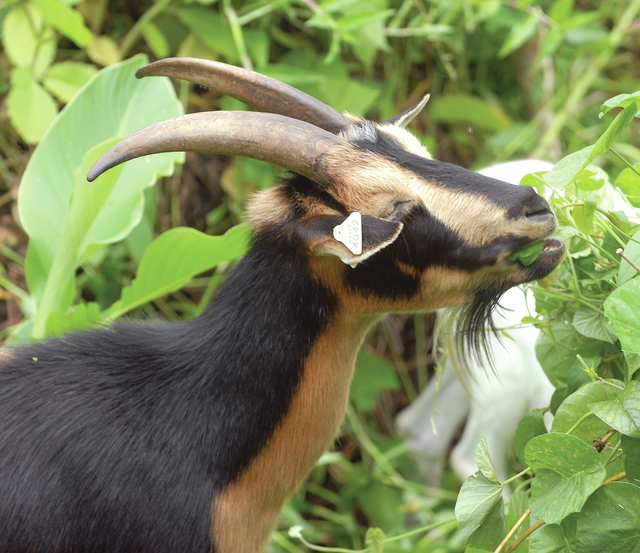What advantage does an army of men with weed eaters have over a legion of hungry goats? ADVERTISING What advantage does an army of men with weed eaters have over a legion of hungry goats? Not a lot, it seems.
What advantage does an army of men with weed eaters have over a legion of hungry goats?
Not a lot, it seems.
Chris Willcox started Big Island Goat Dozers in 2012 with four animals. This week, he had two herds totaling 160 munching their way through two jobs — a quarter acre lot in Kona Highlands and 30 acres of open space with sensitive archaeological sites in Keauhou.
The critters were noshing their way through a full buffet of greenery, leaving only pellets of fertilizer in its place.
The goats got the neighborhood talking. As Willcox dropped by to check how much was left of a quarter-acre lot in Kona Highlands, Kelsey Wehren pulled in to swap business cards.
“People at my gym were talking about you last week,” said Wehren, owner of Trunk Trainers in Kailua-Kona. “It’s a thing. We think it’s great.”
Wehren, who lives nearby, brought her young sons down to watch the goats and donkey eating, and made an afternoon of it.
“Word is getting around,” she said, adding that families with pets are curious if the animals would get along should they want the goat service. “People have dogs and wonder how it all works. The fertilizer is a plus.”
The herds keep him busy, sometimes seven days a week, Willcox said. People are catching on here and across the mainland, looking to the browsing ungulates to knock back vegetation without machines or chemicals.
Hilo has its own answer to Goat Dozers — Aina Pono Livestock &Land Maintenance, which runs herds for low-impact vegetation clearing on the windward side. Kapapala Ranch in Ka‘u uses herds of the animals for brush control and meat, and goats have been trained on Haleakala Ranch to help control weeds.
“My catch phrase is ‘Get herbivores, not herbicides,’” Willcox said. “People like the idea it’s low impact, environmentally friendly and cost-effective.”
Willcox charges from $1,200 to $2,000 an acre for the work, depending on the difficulty of the terrain and the shape of the lot. His herds can munch about an acre every two days.
Not long ago, Willcox was running goats around by himself, and it took up a lot of time, including hours he wished he could have spent with his family. These days, he has two workers to help with projects like a recent job eating down 50-foot wide firebreaks at Waikoloa Village.
Goat Dozers puts up an electric fence around the perimeter, then turns the grazers loose under the eye of two donkeys, Cha Cha and Patron.
The latter animal is one of the Waikoloa nightingales adopted from a Waimea ranch.
“They’re guard animals,” Willcox said. “If a dog goes through the fence and is being aggressive the donkey will get out in front. Donkeys are naturally averse to having canines around.”
An occasional troublemaker jumps the fence, and every now and then a dog causes a ruckus, Willcox said.
“I seem to have few issues with dogs and pigs,” he said. “I’ve had a couple of dogs get in, and I’ve had a goat get bit, but that’s kind of a freak incident.”
The goats devour 85 to 90 percent of the vegetation in their path. Depending on how clear the owners want the lot, Willcox and his crew then move in to clean up the last 10 to 15 percent by hand.
Kona Highlands neighbor Presley Galarza came out of his home to find the animals munching down a jungle of greenery just over the fence. Thursday, the lot was pretty well eaten up. Goats lay around, looking too full to move, lazily nibbling at the elephant grass nearest to them.
“It was all overgrown — brush, grass — you couldn’t see the ground,” Galarza said. “In three days they’ve completely demolished the vegetation.”
Neighbor Don Bowers gave Willcox a resounding thanks as the goat herder made a pass through the lot to check on the animals’ mineral supply and the voltage on the fence.
“I got it posted on Facebook,” Bowers said. “We got green lawnmowers. All of our Facebook friends love it.”







